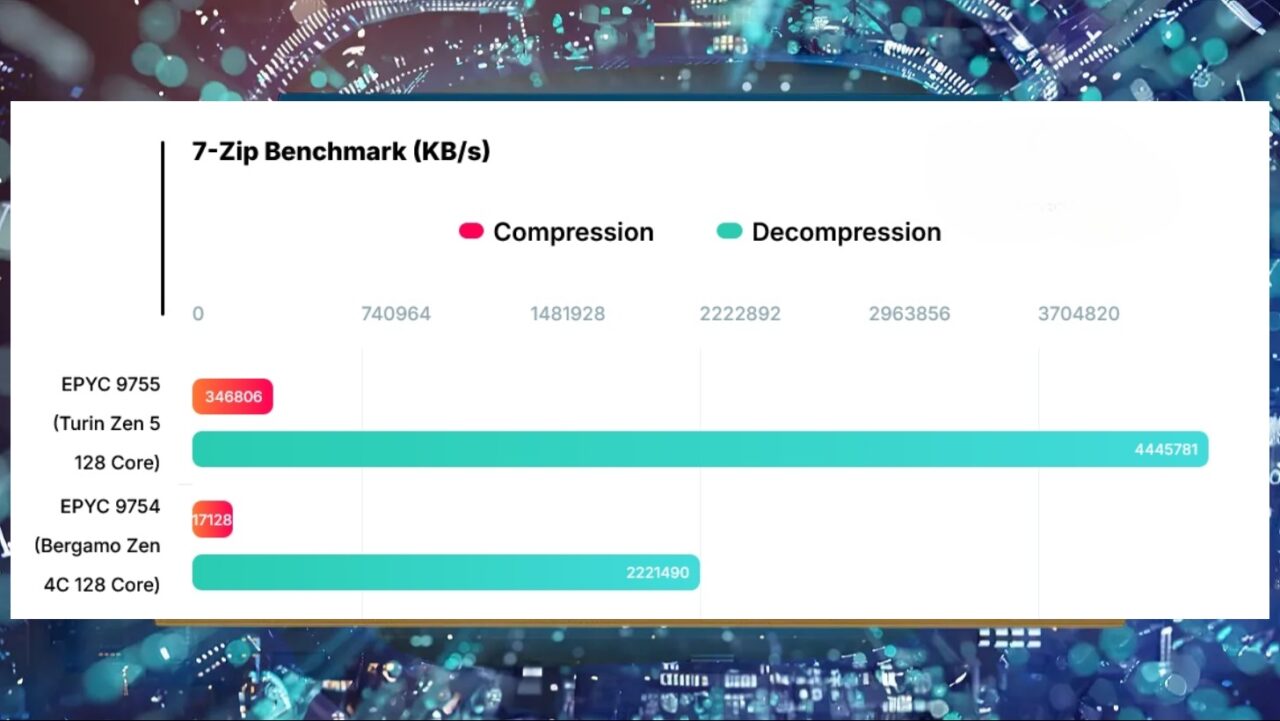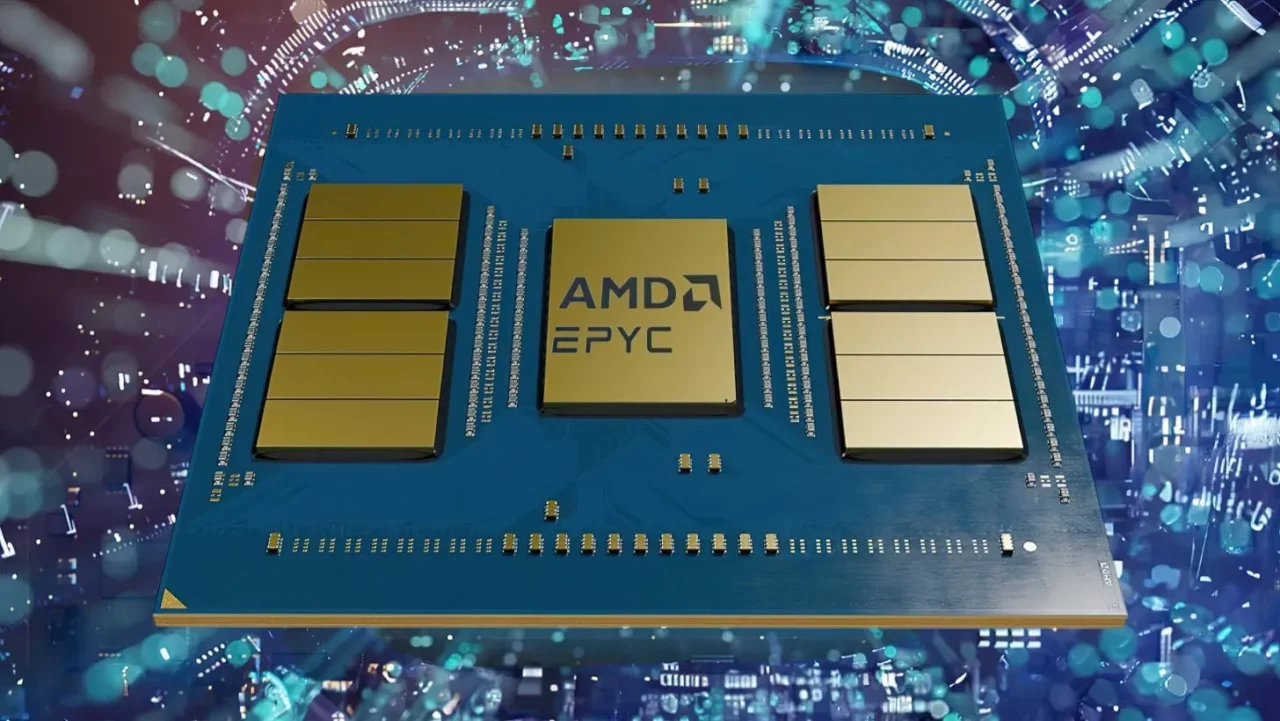There are exciting developments in the world of technology, especially when it comes to high-performance processors. The new generation AMD EPYC 9755 processor has managed to attract all the attention with its test results. Equipped with 128 cores and 256 threads, the massive processor proved to be unrivaled in 7-Zip benchmark tests and doubled the performance of its predecessor, the EPYC 9754 Bergamo. Here are the details…
AMD EPYC 9755 processor doubles 9754 Bergamo’s performance
The EPYC 9755 is the latest addition to AMD’s fifth-generation EPYC family, built on the Zen 5 architecture. This new architecture allows the processor to offer higher performance, efficiency, and speed. The processor’s base clock speed is 2.70 GHz, while in turbo mode, this speed can go up to 4.10 GHz. This speed increase is a great advantage, especially in tasks that require high processing power.

The AMD EPYC 9755 stands out not only for its core and thread count, but also for its cache capacity. Offering a total cache capacity of 650 MB, this processor provides 31% more cache space than the previous generation EPYC 9654 Genoa processor. This allows the processor to work more efficiently in applications that work with large data sets and scenarios that require high-speed computing.
EPYC 9755 also showed that it knows no rivals in the 7-Zip benchmark test. This test is considered an important performance indicator that measures the speed and efficiency of a processor in file compression and decompression operations. EPYC 9755 is astonishing with the results it achieved in this test.
Its predecessor, the EPYC 9754 “Bergamo,” was a Zen 4C processor with 128 cores and 256 threads and achieved very good results. However, the EPYC 9755 raises the bar even higher, offering twice the performance of the Bergamo in compression and decompression speeds.
The AMD EPYC 9755 processor offers such high performance, which is a great advantage for professionals working in areas such as big data processing, artificial intelligence, and deep learning. The processor promises faster data processing, more efficient task completion, and overall higher performance.













